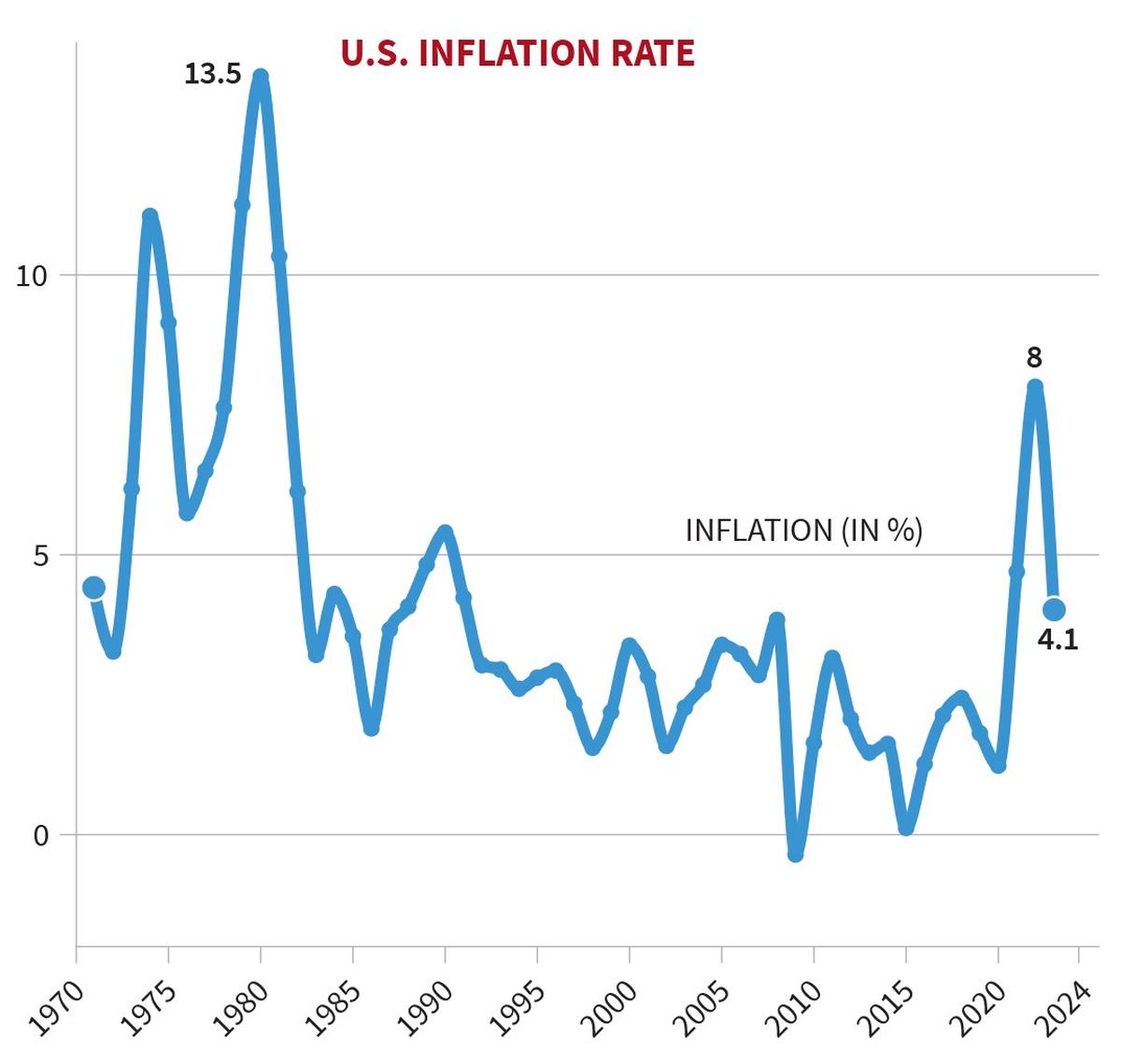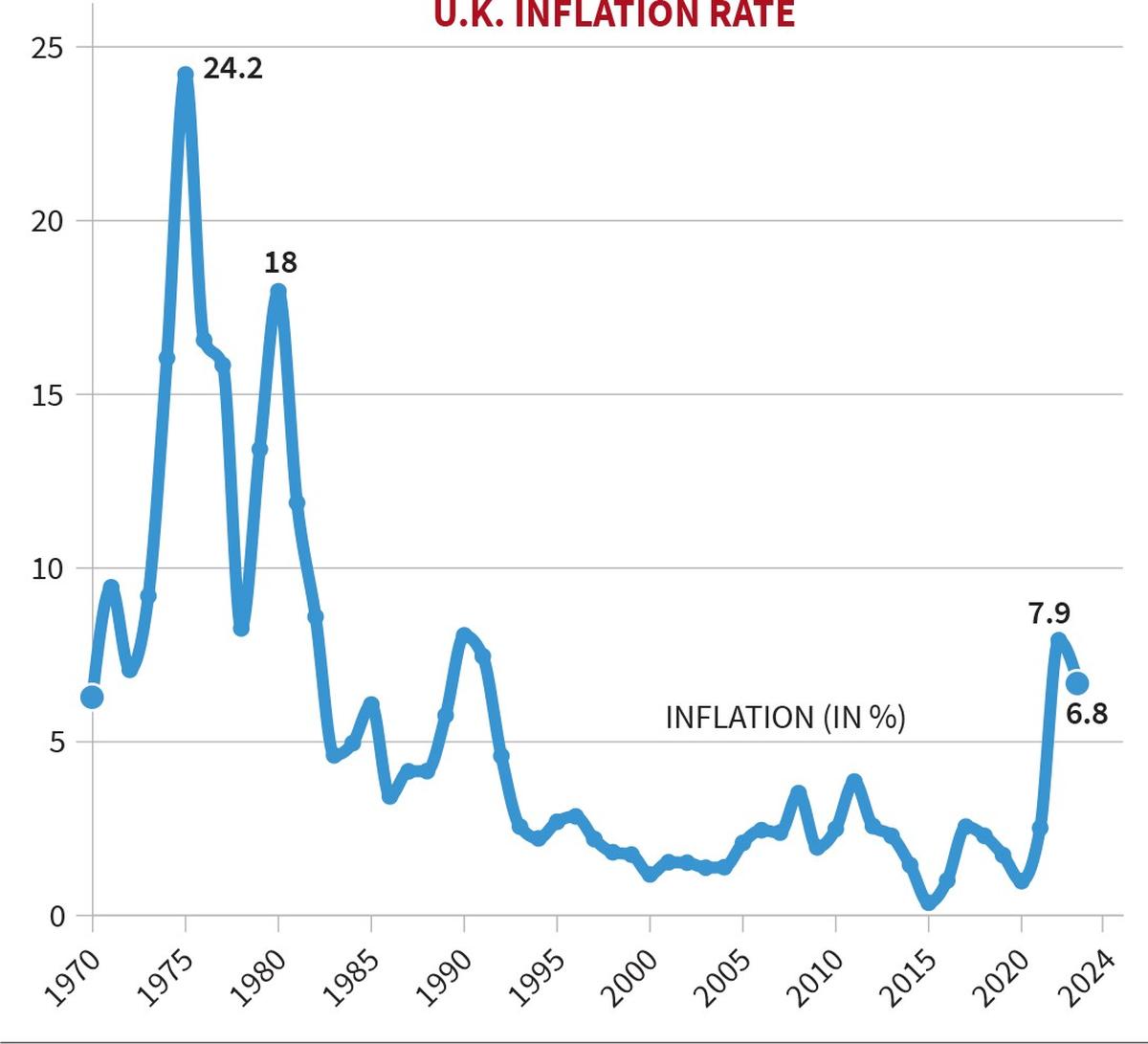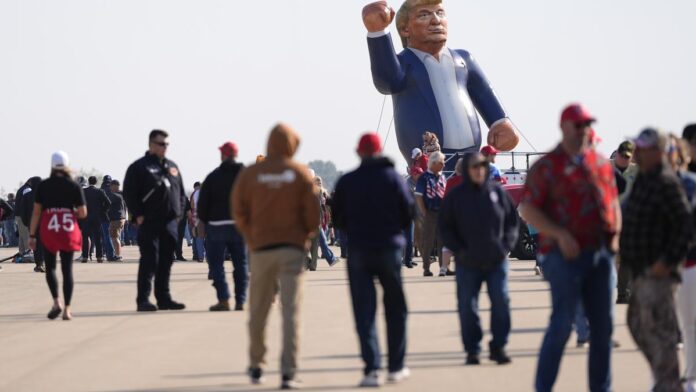Donald Trump has emerged an unlikely victor in the recently concluded U.S. election, with the Republicans delivering a comprehensive victory over the embattled Democrats. Not only have the Republicans captured the popular vote — the first time since George W. Bush in 2004 — but they also captured both houses of government, a resounding victory for the conservatives.
Mishandling of economy
There have been many competing explanations for this loss, such as the Democrats’ support for Israel’s war in Gaza, or the anti-immigrant sentiment stoked by the Republicans. A major factor that eroded support for the Democrats has been their handling of the economy. Joe Biden’s term was marked by a cost-of-living crisis driven by high inflation rates experienced after the COVID-19 pandemic. In a survey conducted in May 2024 by the Pew Research Center, only 23% of Americans expressed a positive opinion of the state of the economy.
Some blame inflation on the mishandling of the economy by Democrats. The fiscal stimulus measures announced by Mr. Biden in the wake of the pandemic helped people deal with the dislocations caused by the lockdown and unemployment, but also, according to one strand of criticism, fuelled excess demand and inflation. Several others point to disruptions in supply chains caused due to worldwide lockdowns, as well as the monopolistic powers of firms leading to ‘greedflation’, or the increase in price to boost profits, rather than inflation being caused due to excess consumer demand. Regardless of what caused inflation, it no doubt played a role in delivering a significant Republican victory.
This is not the first time the Republicans have benefited from high inflation during a Democrat President’s tenure. High inflation in the U.S. and the U.K. during the 1970s brought about decisive electoral victories for the governments of Ronald Reagan and Margaret Thatcher. These elections brought about significant changes in the balance of power between capital and labour, taming inflation but also causing increasing inequality. When seen through this lens, the election of Mr. Trump threatens far-reaching changes in the political economy of the U.S.
Inflation of the 1970s
The figures outline inflation rates in the U.S. and the U.K., from the 1970s to the current period. The oil crises of the 1970s sparked huge inflation rates across the developed world, with these economies facing unprecedented levels of inflation. In the U.S., Mr. Reagan was elected in November 1980 and won a resounding victory, when the inflation rate was almost 13%, the highest rate ever experienced. When Mrs. Thatcher’s Conservative government first took power in 1979, inflation was roughly 17%.

As shown in the graphs, these governments were largely successful in taming inflation, with inflation rates remaining relatively lower during the 1980s. This success was rewarded politically, with both leaders receiving massive mandates in the subsequent election. Many credit the reforms introduced by Mr. Reagan and Mrs. Thatcher for ensuring low inflation and high growth in the 1990s and 2000s.

However, the policies introduced by them had significant effects. Labour unions, strong until then, were weakened by the free-market economic policies introduced by both governments on either side of the Atlantic, with policy taking a decisive anti-union turn. The coal mines in the north of the U.K. were shut in the early 1980s, leading to a protracted strike by labour unions, a strike broken by Mrs. Thatcher. This led to hardships for families that normally relied on incomes from mining in the north of England and resentment for Mrs. Thatcher that saw public outpourings of relief on her death many years later.
The shift of power away from unions allows for lower inflation since labour can no longer press for higher wage claims. A reduction in union power might lead to faster growth with slower rates of inflation as companies face no obstacles in their expansion plans, but it shifts the balance of economic power away from workers and leads to high inequality.
The attenuation of union power led to increasing levels of inequality not seen since the years before World War 1, as shown in the works of Thomas Piketty. Moreover, while the 1990s saw a decade of high growth with low inflation — with the gains accruing largely to the top 1% — the deregulation of financial markets led to the proliferation of exotic financial products that eventually led to the Great Recession of 2008. The legacy of policy in the Reagan and Thatcher years lies heavy over their respective economies.
Current scenario
There are no doubt differences between the current scenario and that of the 1970s. For one, the inflation had already been tamed by the middle of Mr. Biden’s term, with inflation rates dropping from their post-COVID highs. However, high inflation significantly reduced real wages and purchasing power, leading to a Trump victory even though inflation had reduced. One cannot say with certainty what the direction of policy will be in the new Trump term, but there are certain warning signals. Elon Musk has been appointed to look after improving government efficiency, a euphemism for the cost-cutting of federal agencies. With a prominent billionaire so strongly at the helm of economic policy making, there would very well be a strong pushback against the slow moves towards unionisation already being witnessed in companies such as Amazon and Starbucks. Unionised Boeing workers have already won a significant victory, but this victory may not be widespread in the years to come.
The electorate has given Mr. Trump a significant mandate, and early signs indicate the clear hold of loyalists on the levers of policymaking. The lessons of history offer us useful signposts to the future, and the current election resembles that of the 1970s. It is not far-fetched to expect the slowly rising power of unions to be beaten back by a government headed by a billionaire, by a party that has shown its opposition to unionisation and the power of labour.
Rahul Menon is Associate Professor in the Jindal School of Government and Public Policy at O.P. Jindal Global University
Published – November 18, 2024 10:59 pm IST
